Update time:2025-10-03Visits:5072

Zhang Jianjun, Professor of Surgery (Level II), Chief Physician of Liver Surgery at Renji Hospital
Introduction
His story, though ordinary, is deeply inspiring, lighting the way for others. He is seen as a pioneer in medicine, guiding patients from despair to a second chance at life. Behind him are the smiles of recovered patients, advancements in medical technology, and the rapid progress of China’s healthcare system. He has dedicated his life to refining liver transplantation techniques and mentoring the next generation of medical professionals.
The Path to Medicine
In the autumn of 1991, Zhang Jianjun graduated from China Medical University and began his distinguished medical career.
After graduation, Zhang decided to return to his hometown to serve his community. He joined the Department of Hepatobiliary Surgery at the PLA’s 150th Central Hospital, where he quickly became known as the “most reliable” doctor among local residents. From that moment, he was a military doctor dedicated to serving the people.
The 150th Central Hospital of the Chinese People’s Liberation Army, located in the historic city of Luoyang, is a leading medical institution in western Henan, known for its comprehensive specialties and advanced equipment. Millions of patients seek treatment there each year.
During his decade at the 150th Central Hospital, Zhang diligently built the foundation of his expertise, honing his surgical skills day after day.
After ten years, in 2001, Zhang sought to further his knowledge by training at other hospitals. He went to Tianjin First Central Hospital to learn from Professor Shen Zhongyang, a renowned pioneer of liver transplantation in China.
Shen Zhongyang is one of the forefathers of China’s liver transplantation field. For 30 years, he has driven clinical practice and research, introducing numerous new ideas and technologies to the nation’s transplant programs.
In 1994, Shen presided over China’s first successful long-term liver transplantation, setting a national survival record. In 1998, he established China’s first professional transplant team, which later built the largest organ transplant center in Asia—the Oriental Organ Transplant Center, recognized by CLINICAL TRANSPLANTS.
Another major influence on Zhang was Academician Huang Zhiqiang, a renowned surgical master whom Zhang encountered during his training at the General Hospital of the PLA.
“The surgical presence of Academician Huang was unforgettable,” Zhang recalls. “During one complex tumor surgery, he suddenly stopped and closed his eyes. The entire operating room fell silent for twenty minutes. He was calming his mind, visualizing the next steps. Some younger doctors thought he’d fallen asleep, but he was deep in thought. I learned he was a master who thought as he operated, making the procedure smoother and more precise.”
Zhang also admired Huang’s ability to build an outstanding team and cultivate talent, mentoring renowned surgeons like Academician Dong Jiahong and Professor Bie Ping.
“Persisting in critical thinking and emphasizing talent development were Huang’s core principles. This allowed generations of doctors to inherit his ideas and apply them. This tradition wasn’t just about surgical technique; it included a focus on personalized patient care. The rigorous academic and medical style of these experts greatly influenced my approach to team management.”
Under the guidance of these masters, Zhang earned his medical doctorate from the Second Military Medical University in July 2004, marking a new chapter in his life.

A Veteran’s Drive: Building a New Program at Renji
Clinically, Zhang was known for skillfully diagnosing and treating common surgical conditions, performing high-quality operations with remarkable speed. His pioneering rapid combined liver and kidney procurement method was highly praised by his peers.
On the front lines of liver surgery, Zhang has performed thousands of hepatectomies, liver cancer resections, and repeat resections, treating each surgery as a battle to be fully committed to.
Zhang’s research focused on perioperative treatment and organ preservation in liver transplantation. He continuously explored new medical frontiers, dedicating his talent and effort to every patient in need.
He not only innovated in surgery but also conducted foundational research, including prospective studies on rat and pig liver transplantation. This work provided valuable experience for his human transplant surgeries.
In 2003, Zhang joined Renji Hospital, beginning a new journey.
“At that time, I was at Changzheng Hospital when the leadership at Renji, represented by Chen Pei, recruited me. Renji’s liver transplant program was not strong then, and they hoped a young, energetic team could drive it forward. We were young and wanted a bigger platform to perform more surgeries independently.”
Nearly 20 years later, Zhang clearly remembers the early days.
“When I first arrived at the East Campus of Renji Hospital, our department had just a dozen beds squeezed into a small corner. It was Director Xia Qiang, Director Chen Xiaosong, Zhang Ming, and me—four people building the program from scratch.”
This small team performed over 30 liver transplants in the last quarter of 2004, over 100 in 2005, and surpassed 200 by 2007.
Starting is always the hardest part, and the team’s growth was both painful and rewarding. At the time, several Shanghai hospitals already had large-scale transplant programs, while Renji was not yet known in the field.
“Organ transplantation is a complex, multidisciplinary effort. It requires coordination with anesthesiology, the operating room, and other departments like lab, radiology, and infectious diseases. It’s a systematic project, not just a simple surgery. But Renji had one great advantage: whenever we needed support, other departments did everything they could to help us succeed. That’s why we grew so quickly.”
China has a high prevalence of hepatitis, with over 120 million people carrying the hepatitis B virus, creating a massive demand for liver transplantation.
“Although our country performs many liver transplants each year, far more patients die waiting for a chance at treatment. That is heartbreaking.”
Zhang faced immense pressure: a heavy workload, a small team, and the constant need to travel thousands of miles to procure donor organs.
“Sometimes, to ensure an organ’s safety, we had to coordinate quickly with hospitals all over the country.”
After 2007, feeling the department needed to break through a bottleneck, Zhang began to plan its next phase.
“You can’t just focus on the ground beneath your feet; you have to look up at the stars. It’s not just about immediate reality, but also about a vision for the future. I’m an idealist; I feel I should do more. Inertia can be an obstacle, and development requires breakthroughs. With this philosophy, our team pushed through difficulties and achieved great things.”
In the past, China had a limited voice in the international liver transplantation community. Today, global leaders, including the president of The Transplantation Society and the director of the WHO’s Organ Transplantation Project, have acknowledged that “the Renji Liver Transplantation Program is one of the most outstanding in China and even globally.”
Once, more than 30 children with end-stage liver disease from Malaysia traveled to Renji Hospital for life-saving surgery. Doctors and nurses from developed nations like the United States, United Kingdom, Japan, and Singapore also come to Renji for training. The liver surgery team has not only created a miracle, rising from nothing to a world-class program, but has also become a shining symbol of excellence for Shanghai and for China.
Today, Zhang Jianjun’s team has completed over 7,000 adult liver transplantations and re-transplantations, and more than 3,300 pediatric liver transplants, establishing the Renji Liver Surgery department as a benchmark in China’s medical field.

Compassion and Care: Creating Miracles
To Zhang Jianjun, doctors and patients are allies, fighting side by side for life. Through his work, tens of thousands of patients and their families have found healing. Every patient and every surgery remains an unforgettable source of pride.
“We must not only have excellent skills but also view the doctor-patient relationship from a human perspective,” Zhang says.
He still recalls a case from 2007 involving a 37-year-old patient with severe chronic hepatitis B. The family struggled financially, and while the patient felt desperate, he had a powerful will to live.
“He was suffering from upper gastrointestinal bleeding due to portal hypertension and was repeatedly vomiting blood. Without a transplant, he would die, but no donor was available.”
Seeing her brother’s condition worsen, his younger sister decided to donate a portion of her liver. She knew the surgery was a huge risk, but she was driven by one thought: her brother could not die.
When the patient learned of his sister’s decision, he was overwhelmed with gratitude and guilt. He couldn’t bear the thought of her suffering, but he knew it was his only hope.
Their father was pained and hesitant. Watching both his children face the risk of surgery, he worried constantly and asked Zhang about the worst possible outcomes.
“I remember their father squatting on the ground, crying,” Zhang recalls. “He said, ‘On one side is my daughter, on the other, my son. I can’t give up on either.’ I was deeply moved. Without the sister’s donation, the brother would die. But without the father’s support, the surgery couldn’t have happened. In this, doctors and patients aren’t opponents; we’re in the same trench.”
On the day of the surgery, the family waited in silent prayer. The brother and sister were taken to adjacent operating rooms, fighting for the same goal, separated only by a wall. Outside, their father wept.
“I remember the patient entered the operating room at 7:00 AM. At 9:25 AM, a crisis occurred. The patient, who had poor blood clotting, began bleeding massively just before the incision, nearly going into shock. Fortunately, our team stabilized him and we overcame the crisis.”
The 18-hour surgery was fraught with challenges, but Zhang’s team successfully completed the living donor liver transplantation. The family could finally breathe, knowing that a long recovery lay ahead.
During their recovery, both siblings faced difficulties but supported each other through every challenge. Gradually, the son’s face regained its healthy color, and the daughter found her smile again.
“Ten years have passed, and everything is fine. The sister still visits me every year, bringing peaches. Every time, I feel very warm and touched.”
Another case remains etched in Zhang’s memory: a daughter who donated part of her liver to her father. The father, suffering from cirrhosis and gastrointestinal bleeding, was near death. His only child, an executive at a foreign company, faced a difficult choice. Without a transplant, he had only months to live.
“This young woman initially agreed, but that night she returned to my office, terrified and conflicted. Donating the right lobe of the liver is major surgery. She asked me, ‘If my father dies, will he hate me? Will my mother hate me?’ I reassured her that they wouldn’t.”
The next morning, she rushed into Zhang’s office. She had decided to donate. “She said, ‘If I have children in the future, how can I tell them their grandfather died because I was unwilling to donate my liver? What would my children think of me? I wouldn’t be able to be a mother.’ I was very moved. Our traditional family values are incredibly powerful. The surgery was a success. She not only extended her father’s life but also gave herself the courage to become an excellent mother. I later learned she immigrated to Australia and had three healthy children.”
Achievements and Horizons
Zhang attributes the success of Renji Hospital’s Liver Surgery Department to continuous innovation. For him, innovation isn’t about chasing rankings; it’s about constantly improving on what already exists.
“In clinical work, some departments stagnate or even regress. A key reason is that their leaders have a narrow vision, which causes the team to lose its direction and motivation. Leaders must have a broad perspective and empower young doctors. Our Dean, Xia Qiang, is an exemplary leader in this regard.”
For decades, Renji has cultivated talent by giving young doctors more responsibility, infusing the department with new energy. They focus not only on academic skills but also on passing down the department’s culture.
“The division of labor is crucial. Dean Xia and I have distinct roles in research and clinical work, supporting each other for the good of the department.”
In adult liver transplantation, Zhang’s team has pioneered a new technique: the “left lateral segment sequential adult liver transplantation method.” This approach allows them to use a portion of a donor liver, enabling more patients to receive timely treatment and alleviating the donor shortage.
“We believe we can complete over 100 cases of this new technique next year.”
This method benefits patients in several ways. First, it addresses the donor shortage by using a smaller portion of a liver for an adult recipient, increasing the pool of available organs. Second, it improves donor safety by reducing surgical risk, which makes more relatives viable donors and increases the overall success rate.
“Recently, a 44-year-old father successfully donated 330 grams of his liver to his daughter. She has been discharged, and her transplanted liver is growing well.”
This new surgical technique will be a key focus for Zhang in the future.
Zhang envisions an even bigger stage for Renji Liver Surgery. They will continue to innovate, explore new treatments, and provide better patient care. They will remain open to new academic ideas and technologies, constantly updating their skills.
Today, Renji Liver Surgery has cultivated a group of outstanding young doctors, giving them opportunities to gain experience and grow into future leaders.
Looking ahead, the department will seek more collaboration with renowned domestic and international institutions to foster mutual growth and broaden its academic horizons.
“Beyond clinical excellence, we focus on humanistic care, strengthening our patient-centered approach. In treating disease, we let patients become our partners. At the same time, we create a supportive and caring environment for our medical staff.”
Moving forward, Renji Liver Surgery will remain innovative and open, dedicated to attracting top talent, fostering collaboration, and supporting the well-being of both its patients and its staff.
Editor: Chen Qing @ ShanghaiDoctor.cn
If you'd like to contact to Dr. Zhang, please be free to email us at chenqing@ShanghaiDoctor.cn.
Note: Chinese Sources from “The Path of Benevolent Medicine” which was published in 2024. It records 90 important medical figures in the history of Renji Hospital. Yewen Renyi (ShanghaiDoctor.cn) team was one of the major writers of the book and is authorized by Renji hospital to create English version on the website of ShanghaiDoctor.cn
Hospital: Renji Hospital, Shanghai Jiao Tong University School of Medicine
Dr. Liang Wei | Dedicated to Vascular Health, Safeguarding the Body’s Lifelines
Dr. Zou Shien | A Physician’s Mission in Gynecological World
Dr. Bao Shihua | Where Dreams Begin from Reproductive Immunology
Dr. Yang Zhigang | The Art of the Healer: Between the Brush and the Brain
Dr. Cai Junfeng | Guarding Bone and Joint Health, Improving Quality of Life
Dr. Xu Xiaosheng|The Gentle Resilience of a Male Gynecologist
Dr. Shi Hongyu | A Cardiologist with Precision and Compassion
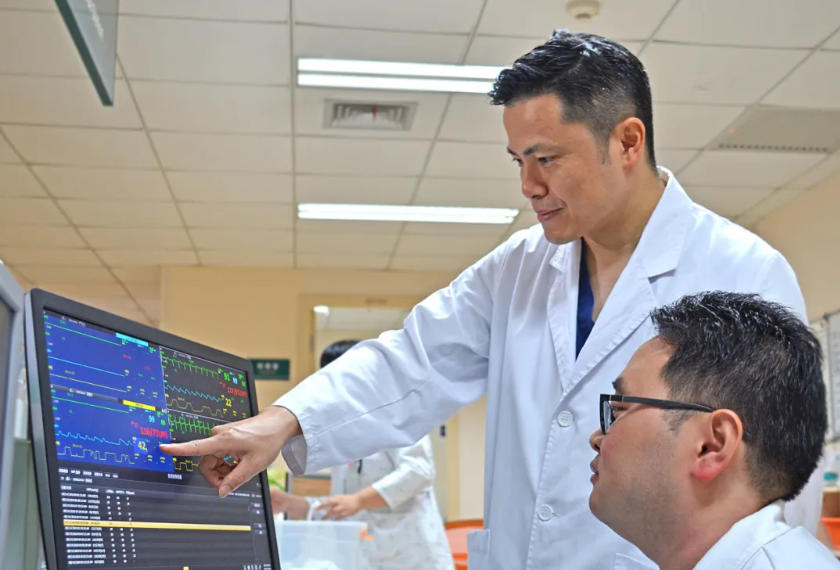
Dr. Liang Wei | Dedicated to Vascular Health, Safeguarding the Body’s Lifelines
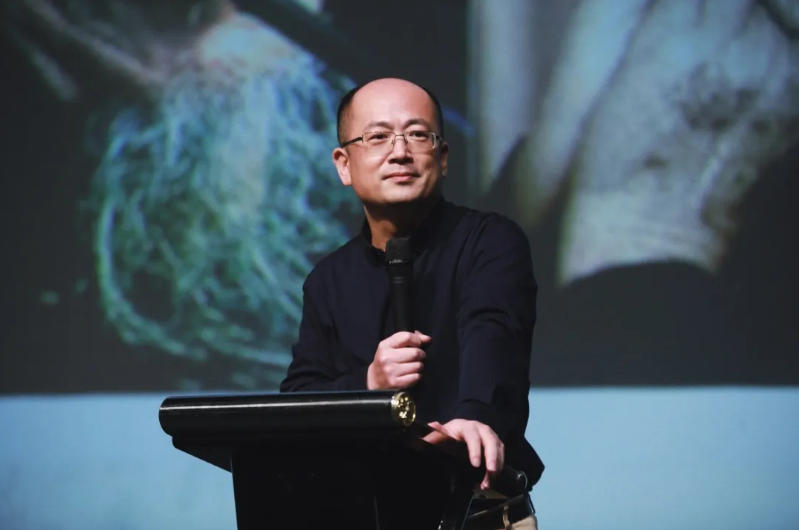
Dr. Zou Shien | A Physician’s Mission in Gynecological World
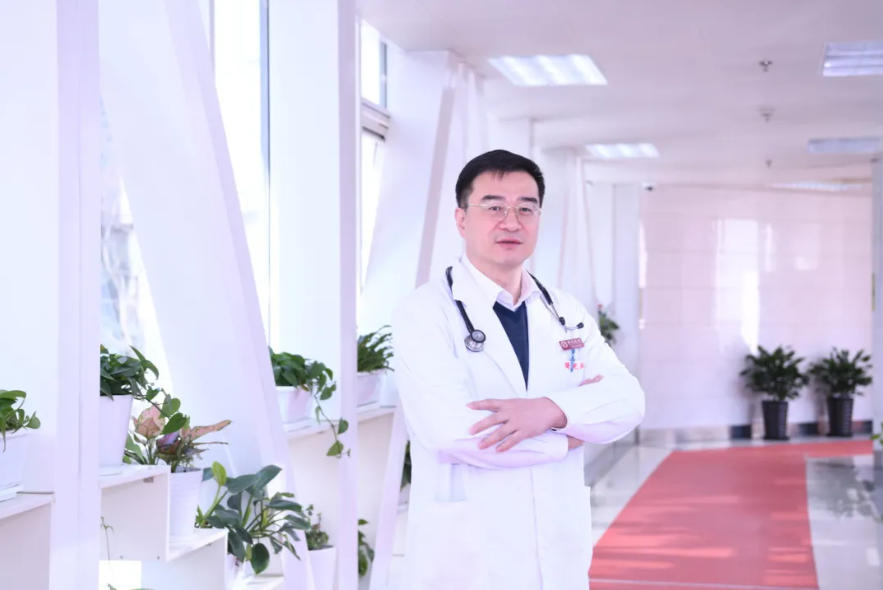
Dr. Cui Song | Healing the Heart, in Every Sense
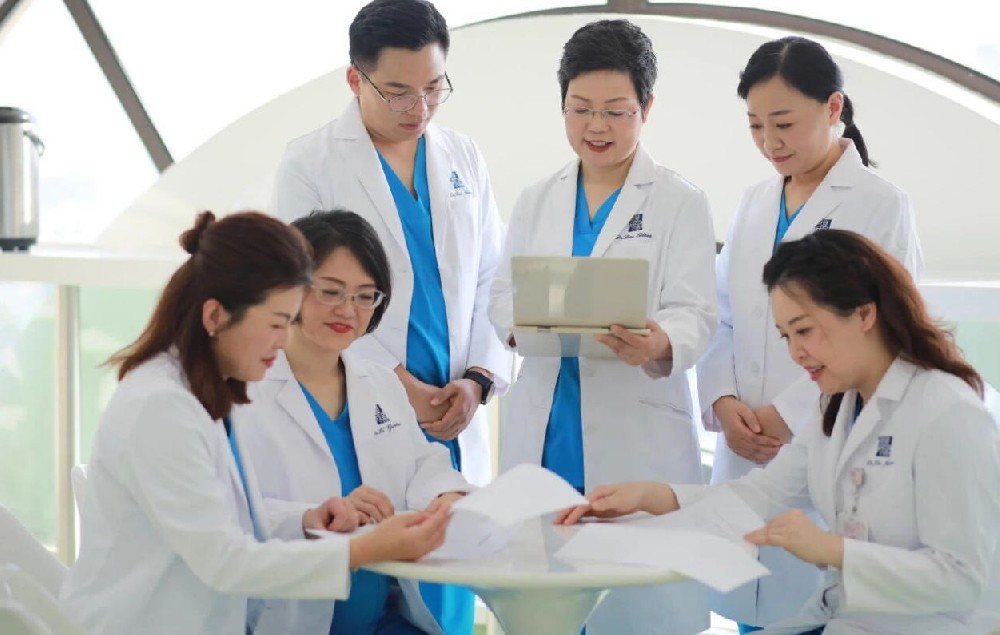
Dr. Bao Shihua | Where Dreams Begin from Reproductive Immunology
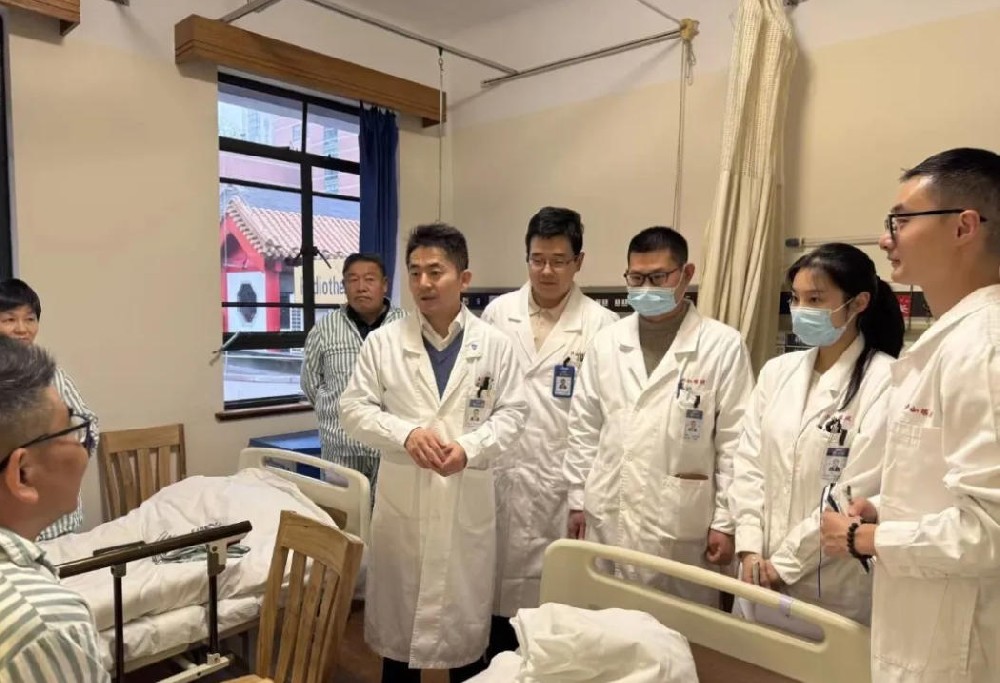
Dr. Yang Zhigang | The Art of the Healer: Between the Brush and the Brain
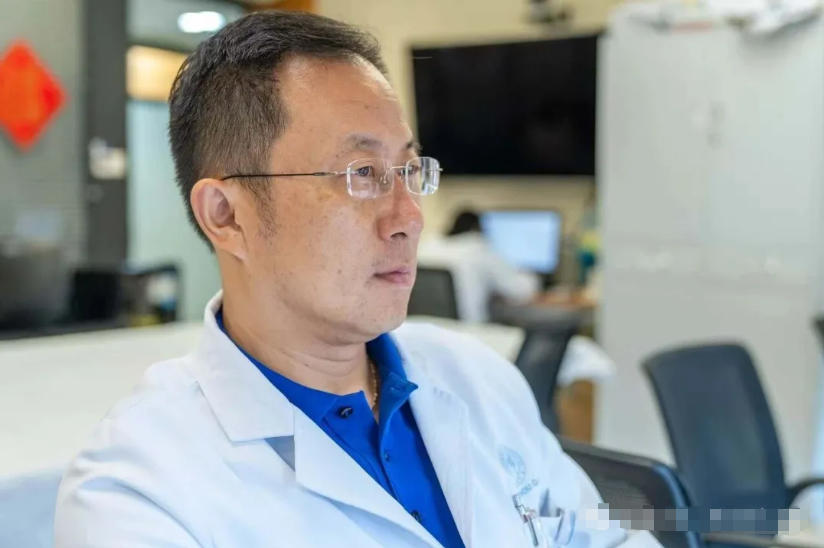
Dr. Zhou Qianjun | Sculpting Life in the Chest
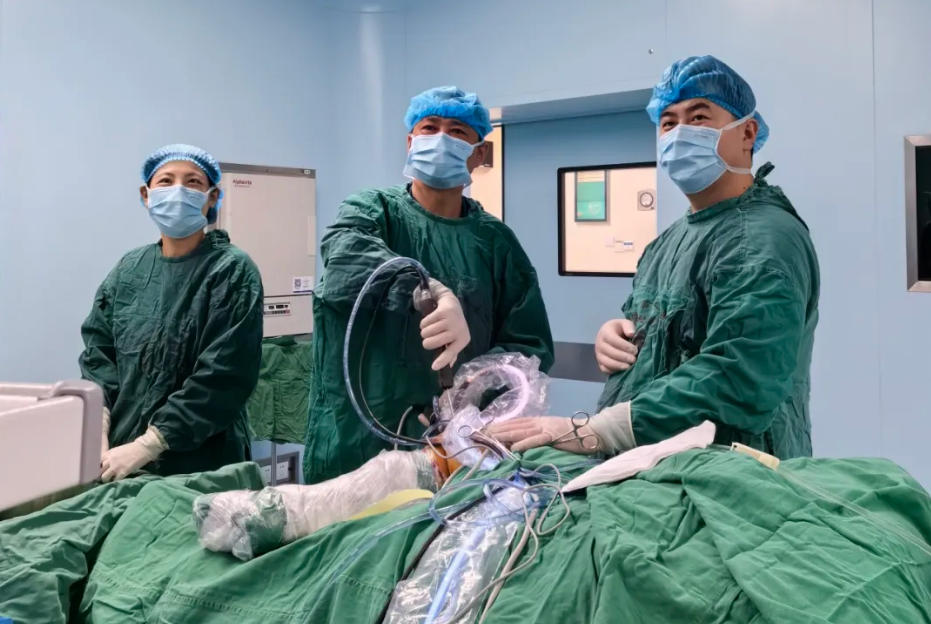
Dr. Cai Junfeng | Guarding Bone and Joint Health, Improving Quality of Life
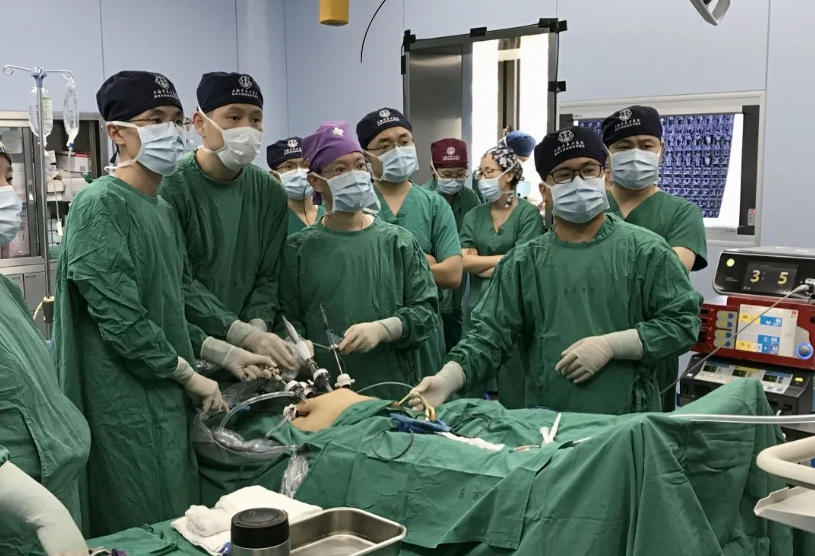
Dr. Cui Xingang | The Medical Dream of a Shanghai Urologist

Dr. Xu Xiaosheng|The Gentle Resilience of a Male Gynecologist

Dr. Shi Hongyu | A Cardiologist with Precision and Compassion